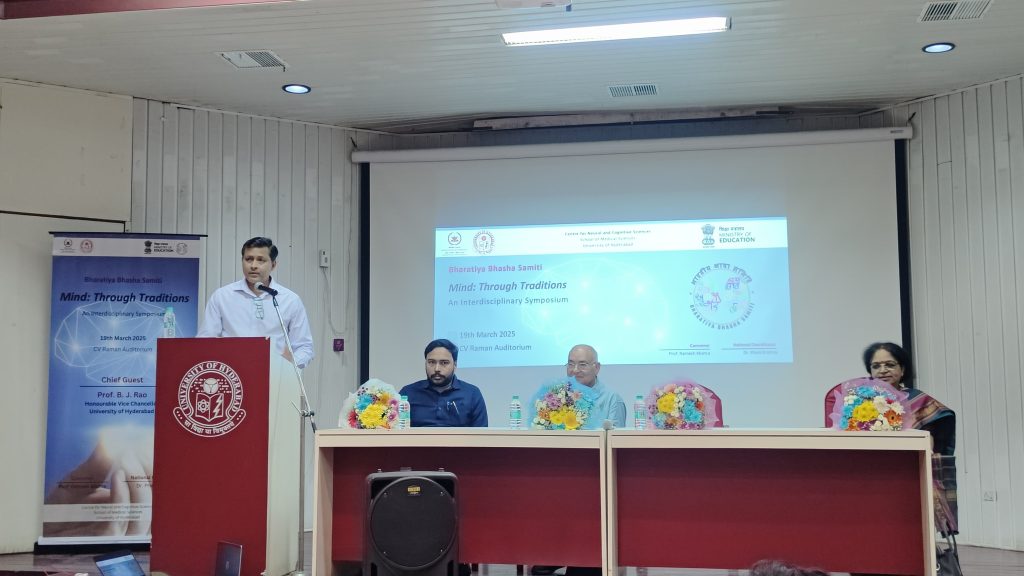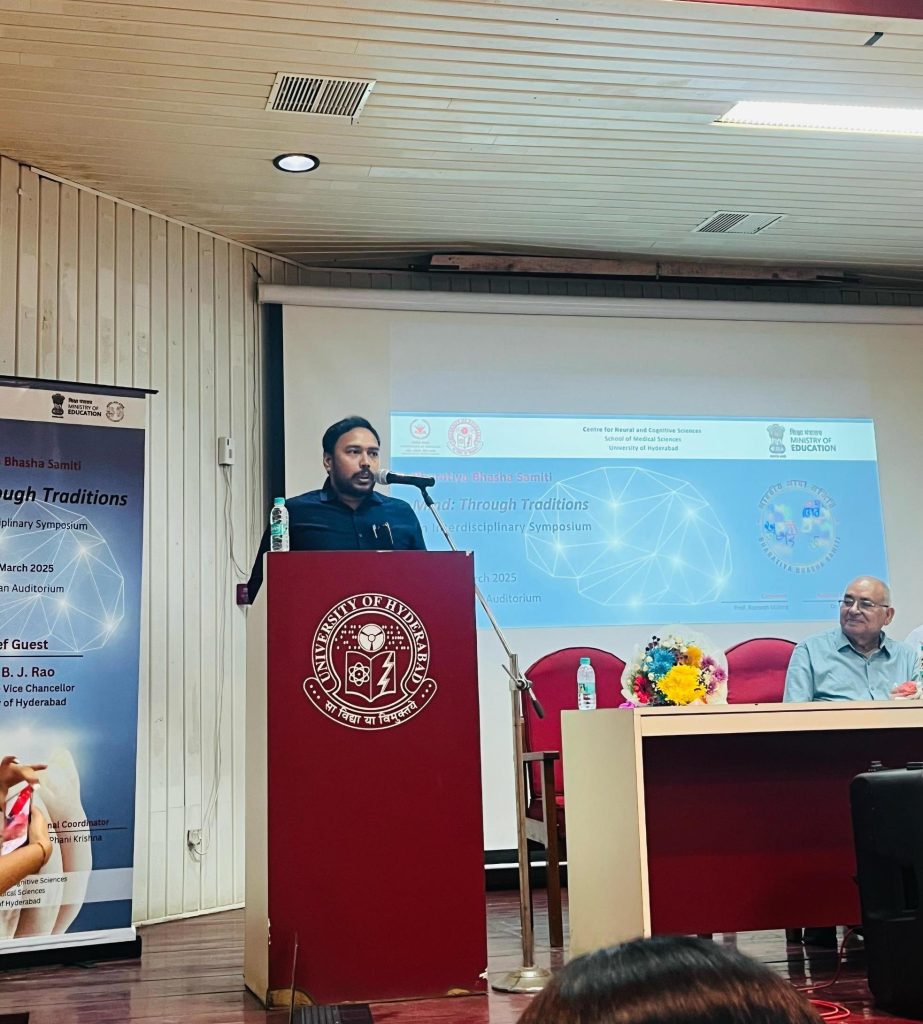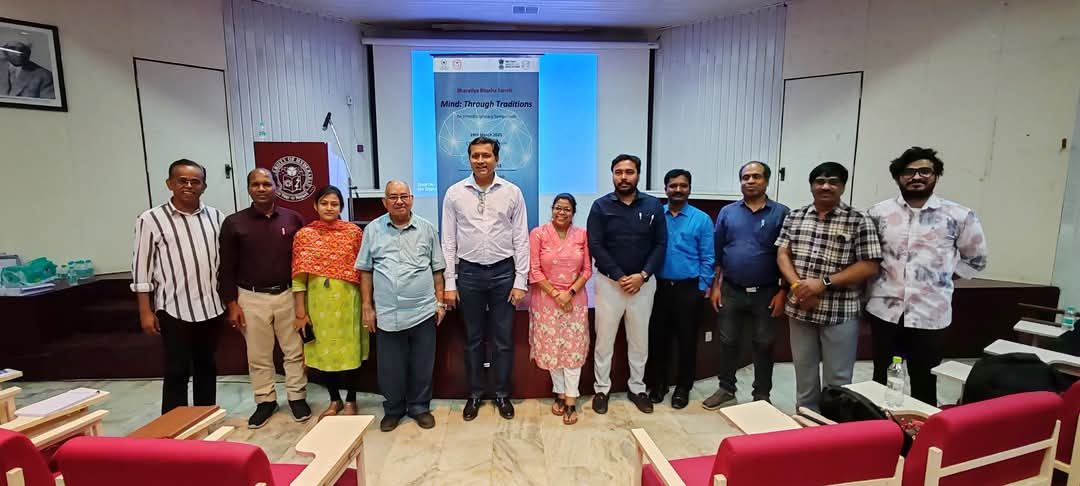The interdisciplinary symposium, Bharatiya Bhasha Samiti – Mind Through Traditions, was successfully convened by Prof. Ramesh Mishra, Dean, School of Medical Sciences, and Head, Centre for Neural and Cognitive Sciences, on the 19th of March 2025. Hosted under the auspices of the Bharatiya Bhasha Samiti, a high-powered committee established by the Ministry of Education, Government of India, the symposium aimed to bring together scholars, thinkers, and intellectuals working in areas related to mind, cognitive science, philosophy, society, and language, along with their practical applications.
Welcoming the gathering, Prof. Mishra shed light on the symposium’s importance in studying the mind through various traditions and how language plays a crucial role in doing so. He also thanked the Bharatiya Bhasha Parivar for their timely and well needed initiative and enlightened the gathering on their mandates.

Our Honorable Vice Chancellor, Prof. B.J. Rao, inaugurated the symposium. In his inaugural address, he emphasized the importance of studying languages in a broader framework beyond the mandates of the National Education Policy (NEP). He highlighted the Bharatiya Bhasha Samiti’s role in promoting linguistic studies, advocating for deeper interdisciplinary research into language and cognition. He encouraged the young minds in the audience to be the torch-bearers of change in ways that they can see themselves contributing to the cause.
A pre-recorded message of Shri. Chamu Krishna Sastri, Honorable Chairman of Bharatiya Bhasha Samiti, was played where he spoke about the importance of Bharatiya Bhasha (Indian languages) and the unity among them. He emphasized how all the languages, in commonness, will portray the idea of Bharatiya Bhasha Parivar. The Guest of Honour and inaugural speaker, Prof. Ramesh Sharma, who is also the advisor for the Bharatiya Bhasha Samiti, set the stage with his insightful remarks on the intricate relationship between traditional knowledge systems and contemporary cognitive sciences. The symposium featured invited speakers from premier institutions, including University of Delhi, IIT-Mumbai, IIT-Ropar, NIT-Rourkela, Indian Statistical Institute, Banaras Hindu University, and University of Hyderabad. These distinguished speakers contributed to vibrant discussions across various domains of cognitive and linguistic research, contributing to a symposium which has been our most diverse so far

Spread throughout the day, the sessions majorly revolved around themes such as traditional systems and contemporary cognitive science, methods in language-cognition research, as well as the scope of research and its applications in the Indian context. The first session explored classical Indian philosophical traditions and their relevance to modern cognitive science, along with ancient Indian texts that provide insights into cognition, perception, and mental processes. Discussions on contemporary methods in language-cognition research delved into advances in linguistic and cognitive neuroscience and modern experimental techniques for studying language processing and cognition. One of the sessions also focused on the societal impacts of language research, specifically in forensic psychology, enlightening the audience about the reach of language research in our everyday lives.
The symposium proved to be a rich intellectual exchange, fostering collaborations across disciplines. The discussions highlighted the need to integrate traditional knowledge with contemporary scientific methods in order to create a holistic understanding of language, cognition, and society. The Bharatiya Bhasha Samiti’s continued efforts in this domain are expected to play a pivotal role in shaping future research. Participants expressed keen interest in further interdisciplinary collaborations, paving the way for new insights and applications in cognitive sciences and linguistics.

